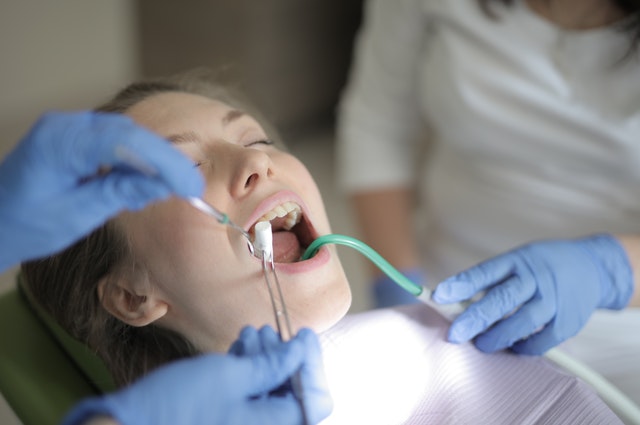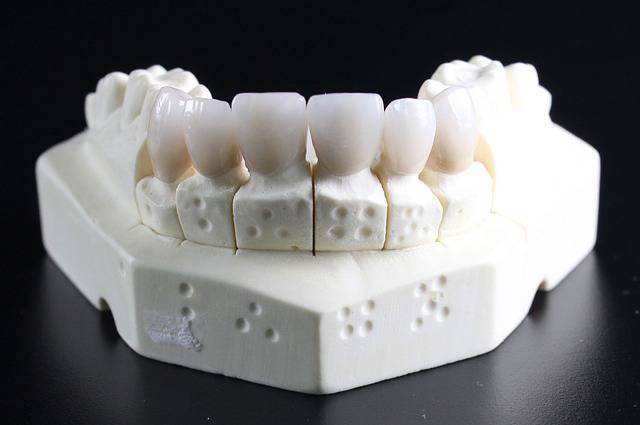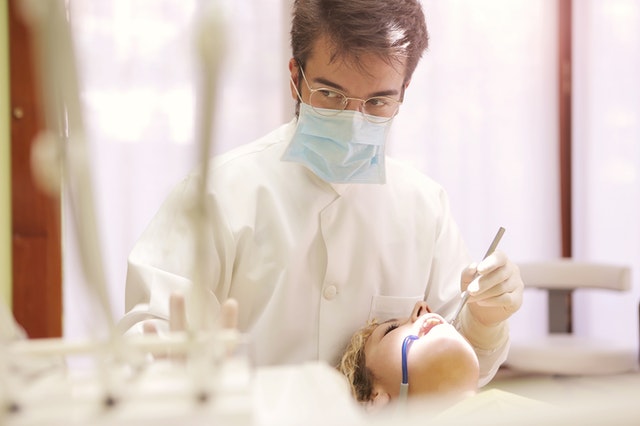5 Most Amazing Outstanding Dental Care

Your smile is one of your most valuable assets, and maintaining excellent dental health is essential not only for aesthetics but also for your overall well-being. In this comprehensive guide, we delve into the realm of outstanding dental care, exploring the importance of oral health, preventive measures, common dental procedures, and advancements in dentistry. Whether you're seeking to enhance your smile or simply aiming to preserve your oral health, this guide aims to provide you with valuable insights and actionable tips for achieving outstanding dental care.
The Importance of Oral Health
Oral health is integral to overall health and quality of life. Beyond the aesthetic appeal of a bright, confident smile, a healthy mouth is crucial for proper nutrition, speech, and self-esteem. Moreover, research has shown links between oral health and various systemic conditions, including cardiovascular disease, diabetes, and adverse pregnancy outcomes. Therefore, prioritizing dental care is not only about maintaining a beautiful smile but also about safeguarding your overall health and well-being.
Preventive Measures for Optimal Oral Health
Preventive dentistry forms the cornerstone of outstanding dental care. By adopting proactive measures and practicing good oral hygiene habits, you can significantly reduce the risk of dental problems and maintain a healthy smile for years to come. Here are some essential preventive measures to incorporate into your dental care routine:
-
Brushing and Flossing:
The foundation of good oral hygiene begins with regular brushing and flossing. Brush your teeth at least twice a day with fluoride toothpaste and floss daily to remove plaque and food debris from between your teeth and along the gumline. -
Regular Dental Check-ups:
Schedule biannual dental check-ups and cleanings with your dentist to detect any oral health issues early and receive professional cleaning to remove stubborn plaque and tartar buildup. -
Healthy Diet:
Maintain a balanced diet rich in fruits, vegetables, lean proteins, and whole grains while limiting sugary and acidic foods and beverages, which can contribute to tooth decay and erosion. -
Fluoride Treatment:
Consider fluoride treatments to strengthen your tooth enamel and prevent tooth decay, particularly if you're at a higher risk of cavities. -
Dental Sealants:
Dental sealants are thin, protective coatings applied to the chewing surfaces of molars to prevent bacteria and food particles from accumulating in the deep grooves and fissures, reducing the risk of cavities.
Common Dental Procedures for Restoring and Enhancing Your Smile
Despite your best efforts to maintain oral health, you may still encounter dental issues that require professional intervention. Fortunately, modern dentistry offers a wide range of treatments and procedures to address common dental problems and enhance the appearance of your smile. Let's explore some of the most common dental procedures:
-
Dental Fillings:
Cavities are a prevalent dental issue caused by bacterial plaque buildup and acid erosion of tooth enamel. Dental fillings, typically made of composite resin, amalgam, or porcelain, are used to restore the structure and function of decayed or damaged teeth. -
Root Canal Therapy:
When tooth decay or trauma reaches the inner pulp chamber of a tooth, it can lead to infection, inflammation, and severe pain. Root canal therapy involves removing the infected pulp, cleaning and disinfecting the root canal, and sealing it to prevent further infection and preserve the tooth. -
Dental Crowns:
Dental crowns, also known as caps, are custom-made restorations that encase a damaged or weakened tooth to restore its strength, function, and appearance. Crowns are often recommended for teeth with extensive decay, fractures, or after root canal treatment. -
Dental Implants:
Dental implants offer a permanent solution for replacing missing teeth by surgically placing titanium posts into the jawbone to serve as artificial tooth roots. Once the implants integrate with the bone, custom-made crowns are attached to restore the aesthetics and function of the smile. -
Teeth Whitening:
Professional teeth whitening treatments can effectively lighten and brighten discolored or stained teeth, enhancing the overall appearance of your smile. Whether performed in-office or with take-home kits, teeth whitening can significantly boost your confidence and self-esteem.
Advancements in Dentistry: Innovations Shaping the Future of Dental Care
The field of dentistry is continually evolving with advancements in technology, materials, and techniques, offering patients more efficient, comfortable, and aesthetically pleasing treatment options. Here are some notable innovations shaping the future of dental care:
-
Digital Dentistry:
Digital technologies, including intraoral scanners, computer-aided design and manufacturing (CAD/CAM), and 3D printing, have revolutionized various aspects of dentistry, from diagnostics and treatment planning to the fabrication of custom restorations. -
Laser Dentistry:
Lasers have transformed dental procedures by offering minimally invasive alternatives to traditional surgical techniques. Laser dentistry enables precise soft tissue management, cavity preparation, gum contouring, and periodontal therapy with minimal discomfort and faster healing times. -
Cone Beam Computed Tomography (CBCT):
CBCT imaging provides high-resolution, three-dimensional images of the oral and maxillofacial structures, allowing for more accurate diagnosis, treatment planning, and surgical guidance in complex cases, such as dental implant placement and orthognathic surgery. -
Biomimetic Dentistry:
Biomimetic dentistry aims to mimic the natural structure and function of teeth by preserving healthy tooth structure, bonding restorations to the tooth surface, and using materials that closely resemble natural enamel and dentin. This conservative approach promotes long-term dental health and durability of restorations. -
Tele-dentistry:
Tele-dentistry utilizes telecommunications technology to facilitate remote consultations, patient education, and follow-up care, expanding access to dental services, particularly in underserved or remote areas. Virtual consultations allow patients to receive expert advice and guidance without the need for in-person visits.
Conclusion
Outstanding dental care encompasses a proactive approach to oral health, preventive measures, prompt treatment of dental issues, and embracing advancements in dentistry to achieve optimal outcomes. By prioritizing regular dental check-ups, practicing good oral hygiene habits, and exploring innovative treatment options, you can preserve your smile, enhance your confidence, and enjoy the benefits of a healthy, beautiful smile for years to come. Remember, your smile is worth investing in, so make dental care a priority and reap the rewards of a lifetime of excellent oral health.
Frequently Asked Questions (FAQS) About Outstanding Dental Care
-
What are the signs of gum disease, and how can I prevent it?
Gum disease, also known as periodontal disease, often presents with symptoms such as swollen or bleeding gums, persistent bad breath, receding gumline, and loose teeth. To prevent gum disease, it's essential to maintain good oral hygiene by brushing and flossing daily, scheduling regular dental check-ups, avoiding tobacco use, and adopting a healthy diet low in sugary and acidic foods. -
How often should I replace my toothbrush, and what type of toothbrush is best?
It's recommended to replace your toothbrush every three to four months or sooner if the bristles become frayed or worn out. Choose a toothbrush with soft bristles and a comfortable grip to effectively remove plaque and debris without causing damage to your teeth and gums. Electric toothbrushes with oscillating or sonic technology are also excellent options for thorough cleaning and convenience. -
Can I whiten my teeth if I have sensitive teeth?
Yes, you can still whiten your teeth even if you have sensitive teeth, but it's essential to choose a gentle whitening method and consult with your dentist beforehand. Consider using whitening toothpaste formulated for sensitive teeth or undergoing professional teeth whitening under the supervision of a dental professional who can customize the treatment to minimize sensitivity and ensure optimal results. -
What should I do if I experience a dental emergency?
In the event of a dental emergency, such as a knocked-out tooth, severe toothache, broken restoration, or soft tissue injury, it's crucial to seek prompt dental care. Contact your dentist immediately for guidance and to schedule an emergency appointment. In the meantime, you can rinse your mouth with warm water, apply a cold compress to reduce swelling, and take over-the-counter pain relievers as needed. -
Are dental x-rays safe, and how often should I have them?
Dental x-rays are generally safe, as they emit low levels of radiation and are essential for detecting hidden dental problems, such as cavities, infections, and bone loss. The frequency of dental x-rays depends on your oral health status, age, and risk factors. Most adults may require dental x-rays every one to two years, while children and individuals with a history of dental issues may need them more frequently. Your dentist will determine the appropriate schedule based on your specific needs and circumstances.






3 Comments